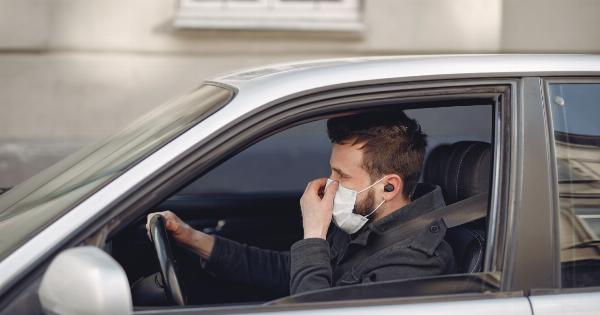As we age, our bodies and minds undergo a number of changes that can impact various aspects of our lives. One of these areas that is of particular concern to many individuals is driving.
As people get older, the question of how safe they are behind the wheel becomes more and more important, especially if they have family or loved ones who rely on them for transportation. In this article, we’ll explore the relationship between age and driving skills to see if there is a correlation, and what that might mean for older drivers and those who share the road with them.
What the research says
Multiple studies have been conducted over the years to determine whether or not there is a correlation between age and driving ability. While the results aren’t necessarily conclusive, there are some trends that have emerged.
Here are a few key findings:.
Reaction time slows with age
One of the most significant changes that occurs as we age is a decline in our reaction time. This means that it takes us longer to process information and respond to stimuli.
This can have a big impact on driving, especially in situations where split-second decisions need to be made. For example, if a car suddenly pulls out in front of you, you need to be able to react quickly to avoid a collision. If your reaction time is slowed, you may not be able to do so in time.
Vision and hearing decline with age
Another factor that can impact driving ability is changes in vision and hearing. As we get older, our eyesight and hearing can start to deteriorate, which can make it more difficult to see or hear important cues on the road.
For example, if you’re driving on a highway and can’t see a sign indicating your exit, you may miss it and have to take a longer route. Similarly, if you can’t hear the sound of an ambulance approaching, you may not pull over in time to let it pass.
Experience can be a factor
While there are certainly physiological changes that occur with age that can impact driving ability, it’s also worth noting that experience can be a factor.
Older drivers who have been behind the wheel for many years may have developed certain habits or skills that make them safer drivers. For example, they may drive more defensively or be better at anticipating the actions of other drivers.
What older drivers can do to stay safe
While there is no way to stop the aging process, there are certain things that older drivers can do to help mitigate the effects of age-related changes on their driving ability. Here are a few tips:.
Get regular check-ups
One of the most important things older drivers can do is get regular check-ups with their doctor. This can help identify any health issues that may be impacting their ability to drive safely.
For example, if they have vision or hearing problems, a doctor may be able to suggest treatments that can help improve these senses. Additionally, if a driver is taking medication that may cause drowsiness or other side effects that can impact driving, a doctor may be able to suggest alternatives.
Take a defensive driving course
Another way to help stay safe on the road is to take a defensive driving course. These courses are designed to help drivers learn techniques for avoiding accidents and navigating challenging situations.
They can be especially helpful for older drivers who may be experiencing changes in their reaction time or other abilities.
Avoid driving in certain conditions
Finally, it may be wise for older drivers to avoid driving in certain conditions that can be particularly challenging.
For example, driving at night or in heavy rain or snow may be more difficult for older drivers who have changes in their vision or reaction time. Additionally, high-traffic areas or busy highways may be more stressful for older drivers who are accustomed to quieter roads.
What other drivers can do to stay safe
Of course, it’s not just older drivers who play a role in road safety. Other drivers on the road also have a responsibility to be aware of and respectful towards all other drivers, regardless of age. Here are a few tips:.
Be patient and courteous
First and foremost, all drivers should strive to be patient and courteous on the road. This means avoiding aggressive maneuvers or tailgating other cars. It also means respecting the rules of the road and driving in a safe and predictable manner.
Be aware of potential issues
If you’re on the road and notice an older driver in front of you, it’s important to be aware of the potential issues that they may be facing. For example, they may be driving more slowly or taking longer to react to changes in traffic.
By being aware of this, you can take steps to avoid getting into a dangerous situation.
Avoid distractions
Finally, all drivers should strive to avoid distractions while behind the wheel. This means not using your phone, eating, or engaging in other distracting activities while driving.
By remaining focused on the road, you can give yourself the best chance of avoiding accidents, regardless of who else is on the road with you.






























